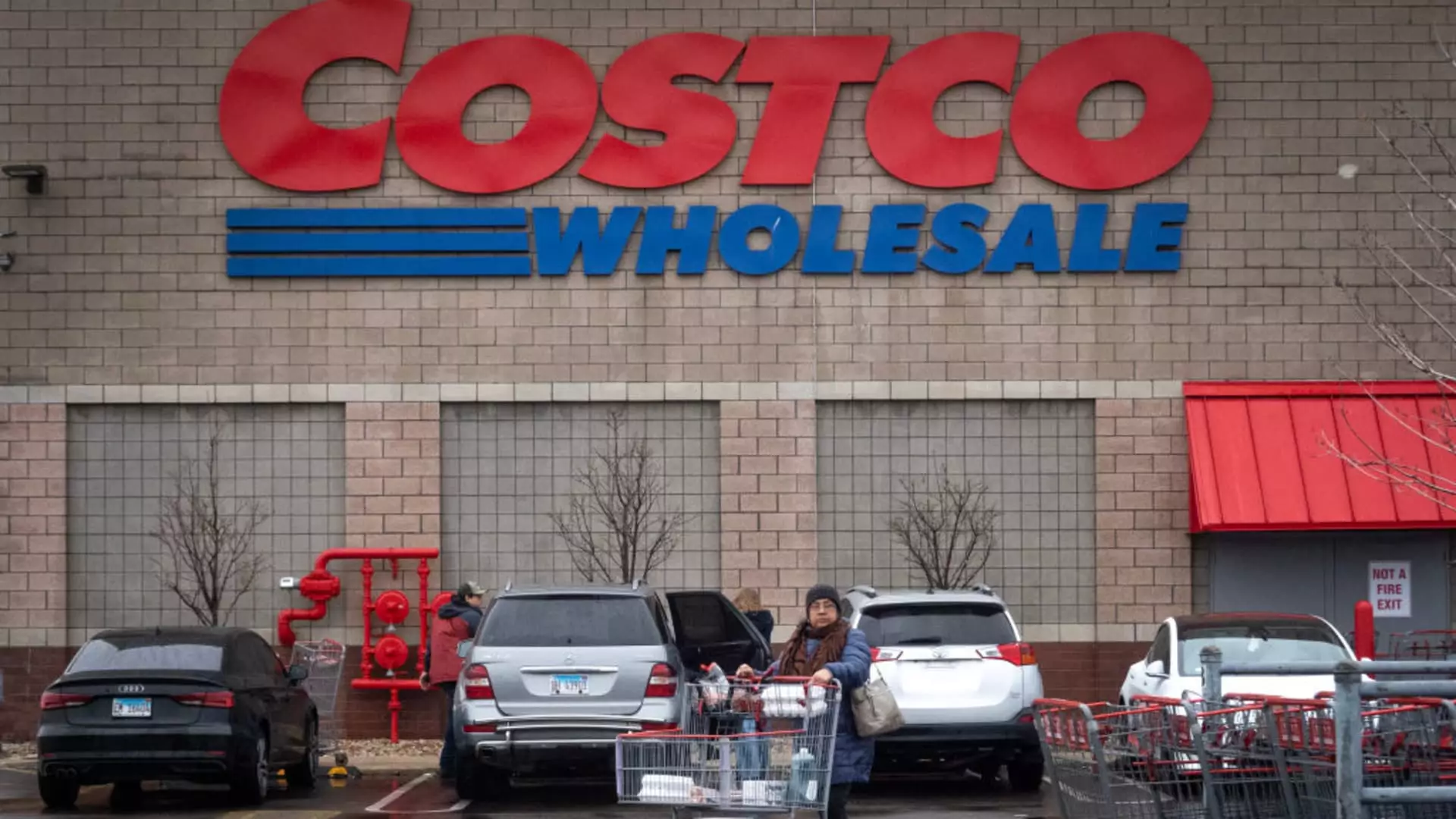In an unpredictable financial landscape dominated by the Trump administration’s tariff threats, investors have found themselves navigating a tempest of volatility. The stock market’s turbulence has left many in a state of trepidation as they scramble to preserve their capital and identify promising opportunities. However, amid this chaos lies a silver lining that investors must grasp: the stock recommendations of top analysts from Wall Street. These seasoned veterans can highlight promising equities that can flourish under pressure and yield significant returns as the market stabilizes.
Zscaler: The Cybersecurity Vanguard Rewriting the Rules
One of the leading stocks that caught analysts’ attention this week is Zscaler (ZS), a cloud cybersecurity titan leveraging its innovative Zero Trust Exchange platform. This platform stands as a formidable shield against data breaches, offering secure connections for users, devices, and applications. The firm reported impressive financial results in its second-quarter fiscal 2025 earnings, leaving analysts abuzz with optimism for its future.
TD Cowen’s analyst, Shaul Eyal, reaffirmed a bullish stance on Zscaler’s stock, setting a price target of $270. What sets Zscaler apart is not only its robust performance but also its adaptability in a digital landscape increasingly fraught with cyber threats. The burgeoning adoption of Zero Trust frameworks and artificial intelligence in security measures has fueled demand for Zscaler’s services, leading to remarkable growth. With an almost doubling of annual contract value from their AI Analytics portfolio year-over-year, Zscaler is at the forefront of cybersecurity innovation.
Eyal’s endorsement is anchored in Zscaler thriving within a competitive market, with a remarkable increase in clients generating over $1 million in annual recurring revenue—a robust 25% year-over-year increase to 620 clients. His emphasis on Zscaler’s efficiency in catering to federal agencies highlights its pivotal role in navigating governmental digital infrastructure amidst increasing pressures for cost-effectiveness. Investors should closely monitor this company, as Zscaler appears poised to dominate the cybersecurity arena in the coming years, significantly bolstered by the AI surge and smart operational strategies.
Costco: A Retail Resilience Testament in Troubling Times
Next, we turn to a retail heavyweight: Costco Wholesale (COST). Despite facing a mixed earnings report in the recent quarter, Costco has materialized as a beacon of resilience. While its earnings slightly missed analysts’ expectations due to external pressures, including foreign exchange challenges, the company still reported impressive revenue growth driven by its loyal customer base and increasing membership fees.
Jefferies analyst Corey Tarlowe noted that Costco’s impressive adjusted comparable sales growth of 8.3% contrasts sharply with struggles faced by its competitors. This resilience is rooted in Costco’s unique positioning in the retail space, with a high percentage of sales derived from non-volatile categories. Additionally, it has limited exposure to the recent tariffs, rendering it less susceptible to external shocks.
Tarlowe’s bullish outlook, with a price target adjustment from $1,145 to $1,180, underscores the belief that Costco can comfortably expand its warehouse footprint even amid challenges. The retailer’s ability to navigate tough economic times, characterized by rising costs and tariff uncertainties, is commendable. Given its scale and effectiveness in leveraging private label brands, Costco appears to be on solid footing, making it an attractive consideration for investors looking for stability in a turbulent retail sector.
Karman Holdings: A Defense Powerhouse with Growth Trajectory
Lastly, we cannot overlook Karman Holdings (KRMN), a newly public defense and space systems company. This sector is one of the most exciting with its considerable potential for growth driven by national security concerns and increased focus on space exploration. Evercore analyst Amit Daryanani initiated coverage on Karman with an ambitious price target of $38.
As the U.S. government accelerates investments in missile defense and hypersonics, Karman stands to benefit significantly from these trends. With sales projected to grow by 18% year-over-year to $409 million, Daryanani’s bullish analysis captures the essence of Karman’s market position—the company is well-aligned with the escalating demand for advanced defense technologies.
Daryanani’s expectation of a one-basis-point expansion in EBITDA margins highlights Karman’s potential for profitability in an industry that can often be hampered by bureaucratic inefficiencies. The multi-year initiative to restock missile inventories signals a ripe opportunity for Karman to carve out a significant foothold in a dynamic and rapidly evolving market.
Investors looking for a mixture of innovation, security, and stability amidst a chaotic political climate would do well to consider these three companies. They represent not merely an escape from the volatility but also potential gateways to future growth.

